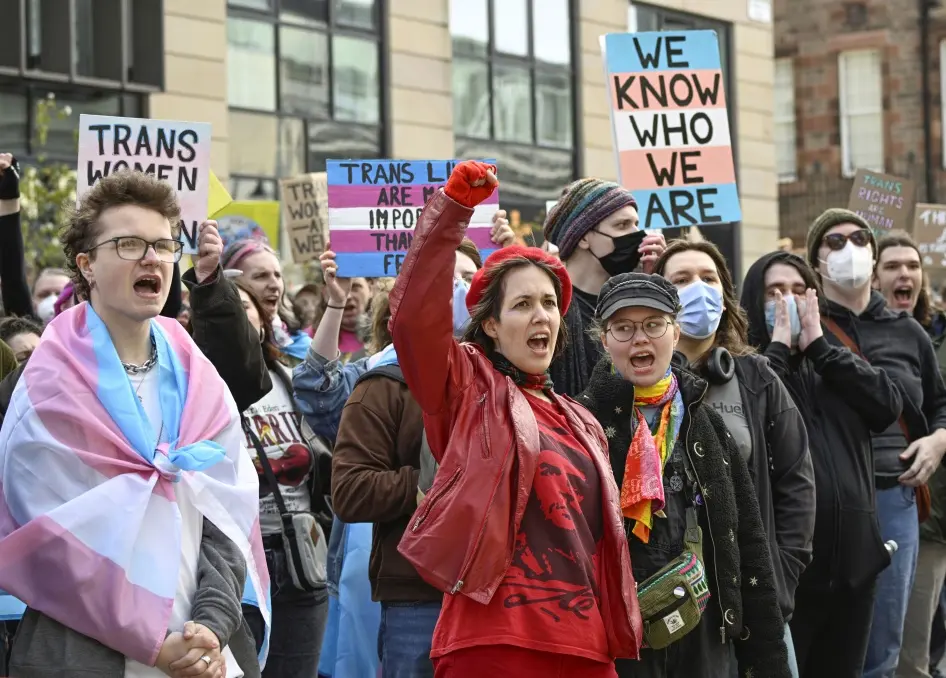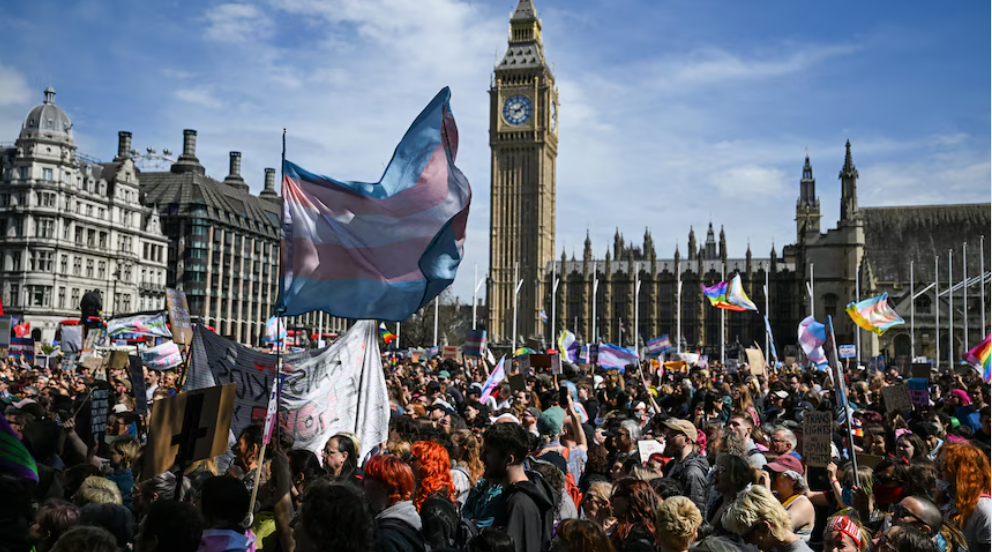By Maria-Nefeli Andredaki,
The term TERF stands for “trans exclusionary radical feminist” and the most recognizable of the bunch is none other than JK Rowling. As a follow-up to my recent articles that focus on Judith Butler’s newest book “Who’s afraid of gender”, this piece will explore the phenomenon of TERFs and its impact on trans lives and modern feminism.
Chapter 5 of Butler’s book focuses on a group that identifies as feminist but opposes core beliefs that constitute feminism. Firstly, TERFs adhere to the idea that gender is a construct, meaning fake and false, and that only sex is “real”. This rigid view of the male and female goes against feminism’s fight to broaden the way we view people, especially women, and to liberate them from essentialist ideas that try to put them in boxes, dictate their lives and deny their bodily autonomy. Associating one’s womanhood with their female sex-assignment at birth is the exact opposite of feminism. However, these “radical feminists” believe that they are protecting women by targeting and vilifying a minority group.

This insistence on biology as the only truth and the denial to critically examine how said biology is actually framed and studied, aligns such “feminists” with right-wing organizations and political parties that seek to establish social hierarchies, control women’s (and generally non-men’s) bodies and take back gay rights, creating a patriarchal dream order.
The “Harry Potter” author is considered by many as the TERF movement’s “face”, having been extremely vocal and transphobic in the last few years. Her latest “accomplishment” was donating 70,000 pounds to a For Women Scotland, the group responsible for UK’s Supreme Court ruling of not legally recognizing trans women as women. This decision significantly impacts trans lives by diminishing their legal protection and creating a hostile environment that can subject them to all kinds of abuse and danger. At this point, it is important to remind ourselves that supporting and engaging with art that is created by transphobic people is equivalent to supporting transphobia. JK Rowling’s financial gain from the Harry Potter franchise played a huge, if not the main, role in the court’s ruling.
Judith Butler states that “transphobic feminism is not feminism, or, rather, should not be”. Feminism strives towards equality. Discrimination that leads to fixed views of what women should be sounds more like what a sexist conservative would desire. It is a truly sad sight to see self-proclaimed feminists turn their backs on people who have historically fought bravely for a better, more just and inclusive world. Trans women of color are pioneers of gay and equal rights and anyone who tries to deny that needs to read a book. Protecting women’s rights does not mean endangering our trans siblings’ lives. And it should definitely not come at that cost.
References
- Judith Butler. “Who’s Afraid of Gender?” Farrar, Straus and Giroux. USA. 2024
- How JK Rowling funded a legal battle that curtailed trans rights in UK. The Times of India. Available here




